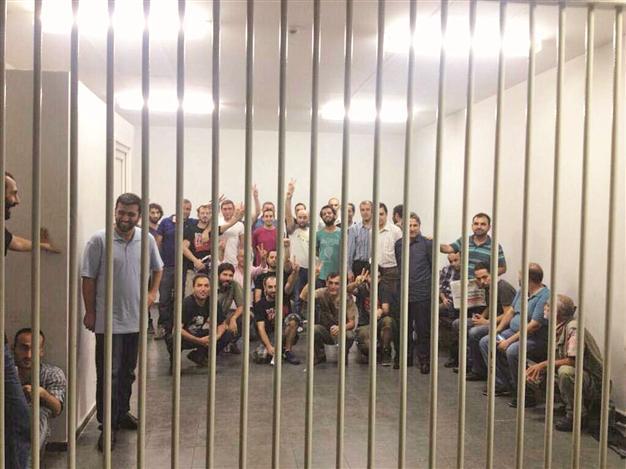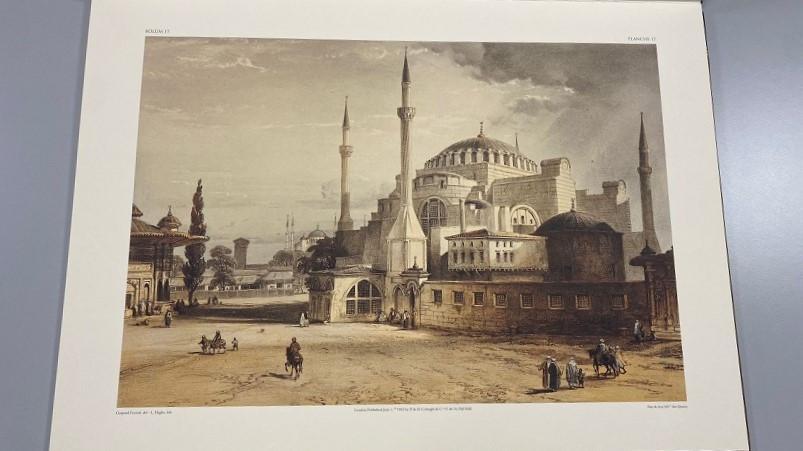Court turns down indictment on Gezi Park
ISTANBUL - Doğan News Agency

Gezi Park protesters, including many members of Taksim Solidartiy Platform, were detained last June at the height of the demonstrations.
An Istanbul court Feb. 10 rejected an indictment against members of the main activist group behind last year’s nationwide anti-government Gezi protests on the grounds that the indictment failed to state which laws the suspects had violated.As such, the court sent back the six-page indictment to the prosecutors’ office for the completion of the missing parts.
Twenty-six members of the Taksim Solidarity Platform each face up to 29 years in prison on charges including founding a criminal organization, violating public order and organizing illegal protests through social media.
The court said it was not clear under which laws the suspects had founded an organization to commit crimes. The indictment should explain how the suspects founded and controlled an organization to commit which crimes under which law, so as to permit them to defend themselves, the court said in rejecting the indictment prepared by the Istanbul Public Prosecutor’s Office.
Prosecutors demanded that suspects be punished on charges of resisting a public official, but the court said there must be evidence of physical coercion or threats for the 26 to stand trial for such an alleged crime. The current indictment does not identify which public officials were allegedly subjected to violence or threats, although it must include officers’ names as complainants, the court added.
The court also said the indictment failed to mention which suspect or suspects damaged a car belonging to the ruling Justice and Development Party (AKP).
Prosecutors had demanded between 7.5 years and 29 years for the Taksim Solidarity members on charges of founding an organization to commit crime, violating the law on demonstrations and resisting public officers.
The members, including Chamber of Architects and Engineers’ (TMMOB) General Secretary Mücella Yapıcı and Istanbul Chamber of Doctors General Secretary Ali Çerkezoğlu, were detained July 8, 2013, during a demonstration at the putative reopening of Gezi Park after police sealed it off for three weeks following a brutal attack on peaceful campers. Yapıcı was among a group of people who met with Turkish Prime Minister Recep Tayyip Erdoğan at the height of the resistance to discuss the protesters’ demands.
Istanbul Gov. Hüseyin Avni Mutlu, who became the target of popular opprobrium during the Gezi resistance for the frequent brutality of the police forces under his command, announced the reopening of the park for July 8, prompting Taksim Solidarity to call on the public to attend the park’s reopening. Frightened by the prospect of mass solidarity, however, Mutlu quickly reordered the closure of the park.
The indictment stated that Çerkezoğlu, Yapıcı, Beyza Metin, Ender İmrek and Haluk Ağabeyoğlu endangered public safety in Istanbul by calling on people to come to the reopening through the media, Facebook and Twitter. The suspects had formed a criminal organization and controlled and planned the unrest through the protests, the indictment also said.
The court’s decision marks the second indictment regarding the Gezi protests that have been returned to the Prosecutor’s Office. Last September, an indictment charging 23 protesters by formally showing masks, helmets, swim masks, vinegar, solutions and bandages, mostly used for protection against tear gas, as evidence of their crimes, along with banners. The court said those items did not fall under the category of weapons, as defined by the law.
The attempt to save the last green area in Istanbul’s central Taksim Square evolved into the country’s largest turmoil in recent history, with prolonged protests across the country, resulting in the deaths of seven protesters and one police officer. Thousands of people were also injured as a result of sustained police brutality. Taksim Solidary was among the initial NGOs to protest against the destruction of Gezi Park and its replacement with a shopping mall.
















